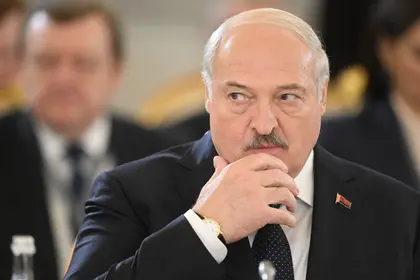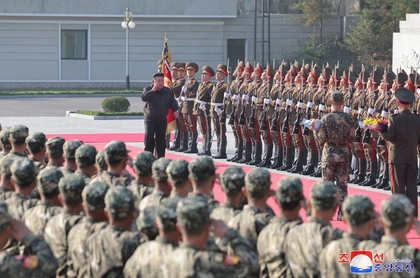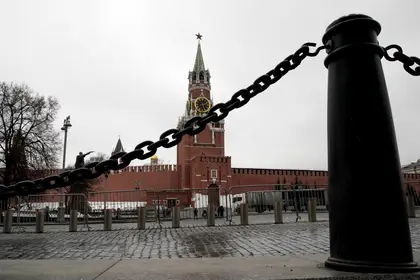With NATO borders soon to be further threatened by Russian nuclear weapons, the West appears to be unable to take the lead. Instead, it merely reacts. As tactical nuclear bases are being finalized in Belarus, the Lukashenko-led state is being hit with a new wave of diplomatic shocks and trade sanctions.
The International Labour Organization (ILO), a United Nations body charged with caring for labor standards and workers’ rights, is gearing up to pass a resolution to increase the pressure on Belarus and potentially limit international cooperation with the Lukashenko regime.
JOIN US ON TELEGRAM
Follow our coverage of the war on the @Kyivpost_official.
On June 6, the ILO General Affairs Committee agreed on a resolution regarding Belarus to be presented at the general meeting in the second week of June 2023, calling for the application of article 33 of the organization’s constitution, giving the ILO permission to apply any “action as it may deem wise and expedient.”
The decision in committee can be said to have been carried by Western democracies. The only two countries to vote against the motion in committee were Russia and China, despite voices of opposition to the motion during the debate also coming from Algeria, Cuba, Egypt, Iran, Laos, Syria, Pakistan and Zimbabwe. In contrast, the representatives of the EU states and candidate countries, including Ukraine, and the US, Australia, Canada, Japan and the UK all spoke and voted in favor of the motion.

South Korea Demands 'Immediate Withdrawal' of North Korean Troops in Russia
The move comes after Belarus’s repeated disregard for the organization’s demands for the country to adhere to international conventions on worker’s rights and rights to assembly.
A resolution, if passed, may call on international organizations to cease cooperation with the Lukashenko regime.
The war in Ukraine has shown the tepid temper of the UN as an international organization, with many a resolution on Russia, but no tangible results materializing from hours of deliberation and debate among members sitting in comfortable chairs in their New York meeting rooms. The ILO, like the UN General Assembly, may be viewed as yet another inconsequential resolution-churner, but the decision to apply article 33 against Belarus will create a precedent.
While the decision of the ILO is non-binding and the groups that work with the UN body, as well as member states, will be free to direct their own policy on Belarus, this will be the first decision, with calls for direct action, made against the Lukashenko regime by the UN.
Work to present the ILO motion has been long in the making, with many a Belarusian independent labor movement involved in the process, but the timing of the decision can point to another development that the international community is looking to address. Although no mention of the nuclear weapons was made during the debate, a topic that is very much outside the ILO remit, the timing with Russian nuclear ambitions in Belarus seems too close to be coincidental.
The expected ILO decision also comes amid a June 8 UK announcement of additional sanctions on the Lukashenko regime, looking to end the £30 million ($37 million) export in goods and £19 million ($24 million) export in services to the dictator ruled state. The UK will ban the export of banknotes, machinery, as well as goods, technologies and materials that could be used to produce chemical and biological weapons. In turn, import of gold, cement, wood and rubber to the UK from Belarus will also be prohibited.
The UK’s additional sanctions come one year, three months, and two weeks since the start of Russia’s large-scale invasion of Ukraine, in which Belarus has actively assisted. And while the UK has already adopted sanctions packages against the state, the last of these was on the June 5, 2022. This begs the question of why it has taken more than a year – despite Belarus’s continued logistical, military and diplomatic support of Russia – for the UK to impose further sanctions.
While the UK and Belarusian trade relations do not rank high on partner lists for both countries, Westminster has been keeping this sanctions package up its sleeve for too long, announcing only after the May 25 the signing of a deal that would place Russian nuclear weapons in the country. Bearing in mind that after nearly a year of such inactivity, and despite the lack of allusion to Russia’s nuclear expansion in Belarus in the official statement by the FCDO, it is hard not to make the connections between these two events.
The moves by the ILO and the UK to apply further pressure on the Belarusian dictator have to be seen in a favorable light, a messages to elites of complete decoupling and further economic hardship for the state being constitute a difficult blow.
However, the timing of these decisions is unfortunate. Had the Western powers acted and timed measures to the release of evidence of Belarusian involvement in the Russian invasion or the forced deportation of Ukrainian children, one could interpret the actions as a proactive position. But what we are witnessing it yet another catch-up move that could and should have been done months ago.
The views expressed in this opinion article are the author’s and not necessarily those of Kyiv Post.
You can also highlight the text and press Ctrl + Enter






